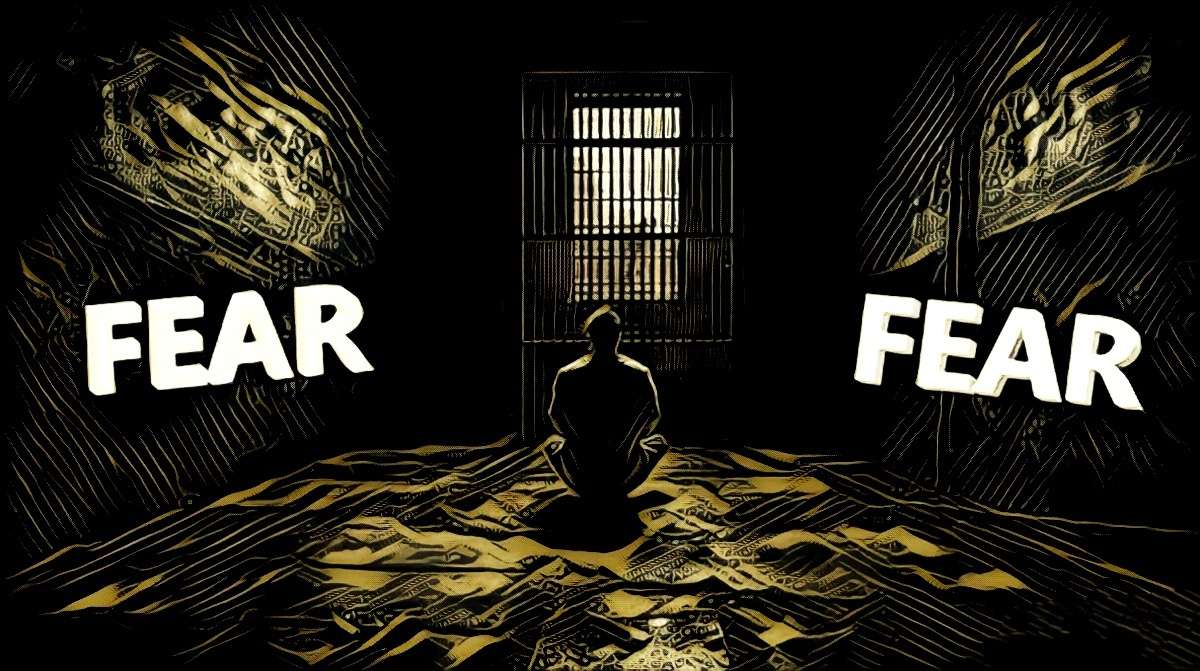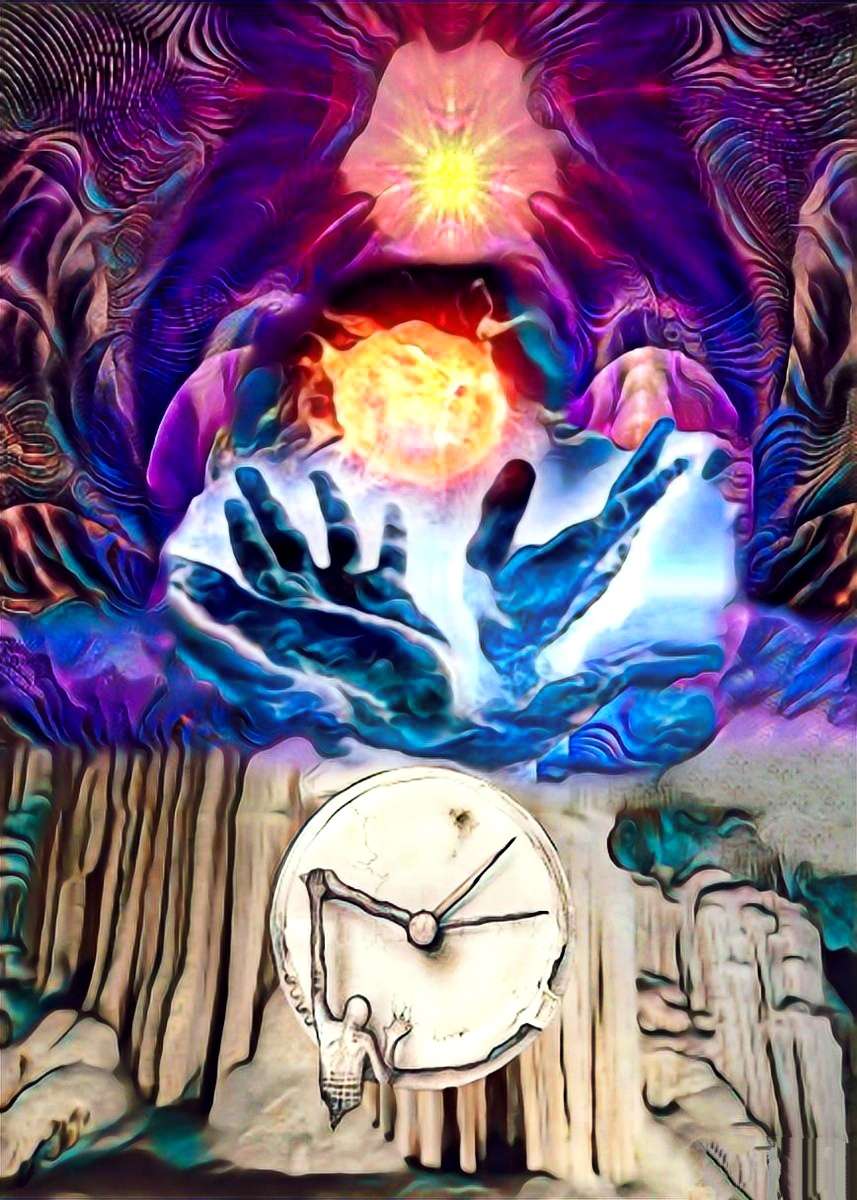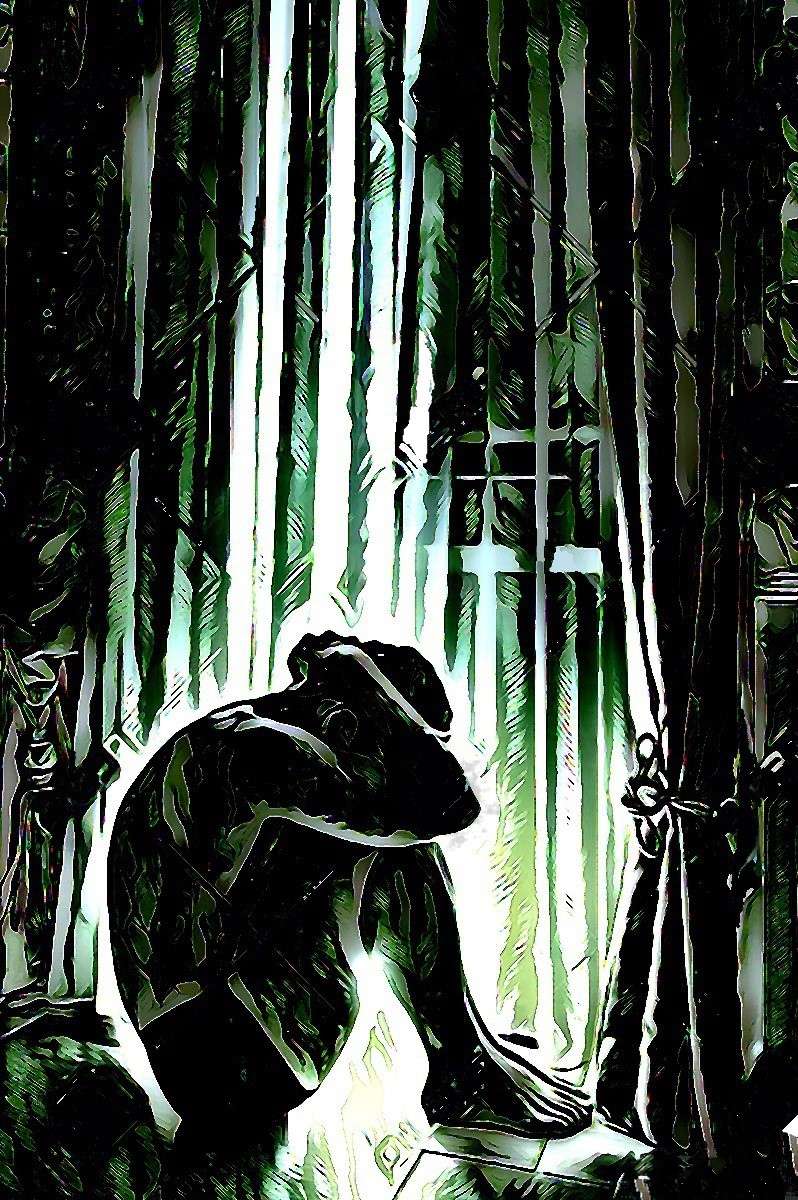
Education, education, education alone! Travelling through many cities of Europe and observing in them the comforts and education of even the poor people, there was brought to my mind the state of our own poor people, and I used to shed tears. What made the difference? Education was the answer I got. Through education comes faith in one’s own Self, and through faith in one’s own Self the inherent Brahman is waking up in them, while the Brahman in us is gradually becoming dormant.
The ignorant, the man devoid of Shraddha(devotion), the doubting self runs to ruin.
Let us pray, “Lead, Kindly Light” — a beam will come through the dark, and a hand will be stretched forth to lead us. I always pray for you: you must pray for me. Let each one of us pray day and night for the downtrodden millions who are held fast by poverty and tyranny — pray day and night for them. I care more to preach religion to them than to the high and the rich. I am no metaphysician, no philosopher, nay, no saint. But I am poor, I love the poor. I see what they call the poor of this country, and how many there are who feel for them! What an immense difference in India! Who feels there for the two hundred millions of men and women sunken for ever in poverty and ignorance? Where is the way out? Who feels for them? They cannot find light or education. Who will bring the light to them — who will travel from door to door bringing education to them? Let these people be your God — think of them, work for them, pray for them incessantly — the Lord will show you the way. Him I call a Mahâtman (great soul) whose heart bleeds for the poor, otherwise he is a Durâtman (wicked soul). Let us unite our wills in continued prayer for their good. We may die unknown, unpitied, unbewailed, without accomplishing anything — but not one thought will be lost. It will take effect, sooner or later. My heart is too full to express my feeling; you know it, you can imagine it. So long as the millions live in hunger and ignorance, I hold every man a traitor who, having been educated at their expense, pays not the least heed to them! I call those men who strut about in their finery, having got all their money by grinding the poor, wretches, so long as they do not do anything for those who are now no better than hungry savages! We are poor, my brothers, we are nobodies, but such have been always the instruments of the Most High. The Lord bless you all.
I will compare truth to a corrosive substance of infinite power. It burns its way in wherever it falls — in soft substance at once, hard granite slowly, but it must. What is writ is writ. I am so, so sorry, Sister, that I cannot make myself sweet and accommodating to every black falsehood. But I cannot. I have suffered for it all my life. But I cannot. I have essayed and essayed. But I cannot. At last I have given it up. The Lord is great. He will not allow me to become a hypocrite. Now let what is in come out. I have not found a way that will please all, and I cannot but be what I am, true to my own self. “Youth and beauty vanish, life and wealth vanish, name and fame vanish, even the mountains crumble into dust. Friendship and love vanish. Truth alone abides.” God of Truth, be Thou alone my guide! I am too old to change now into milk and honey. Allow me to remain as I am. “Without fear — without shopkeeping, caring neither for friend nor foe, do thou hold on to Truth, Sannyâsin, and from this moment give up this world and the next and all that are to come — their enjoyments and their vanities. Truth, be thou alone my guide.” I have no desire for wealth or name or fame or enjoyments, Sister — they are dust unto me. I wanted to help my brethren. I have not the tact to earn money, bless the Lord. What reason is there for me to conform to the vagaries of the world around me and not obey the voice of Truth within? The mind is still weak, Sister, it sometimes mechanically clutches at earthly help. But I am not afraid. Fear is the greatest sin my religion teaches.
The last fight with the Presbyterian priest and the long fight afterwards with Mrs. Bull showed me in a clear light what Manu says to the Sannyasin, “Live alone, walk alone.” All friendship, all love, is only limitation. There never was a friendship, especially of women, which was not exacting. O great sages! You were right. One cannot serve the God of Truth who leans upon somebody. Be still, my soul! Be alone! and the Lord is with you. Life is nothing! Death is a delusion! All this is not, God alone is! Fear not, my soul! Be alone. Sister, the way is long, the time is short, evening is approaching. I have to go home soon. I have no time to give my manners a finish. I cannot find time to deliver my message. You are good, you are so kind, I will do anything for you; and do not be angry, I see you all are mere children.
Infinite patience, infinite purity, and infinite perseverance are the secret of success in a good cause.
Now as each individual can only see his own universe, that universe is created with his bondage and goes away with his liberation, although it remains for others who are in bondage. Now name and form constitute the universe. A wave in the ocean is a wave, only in so far as it is bound by name and form. If the wave subsides, it is the ocean, but those name and form have immediately vanished for ever. So though the name and form of wave could never be without water that was fashioned into the wave by them, yet the name and form themselves were not the wave. They die as soon as ever it returns to water. But other names and forms live in relation to other waves. This name- and-form is called Mâyâ, and the water is Brahman. The wave was nothing but water all the time, yet as a wave it had the name and form. Again this name and form cannot remain for one moment separated from the wave, although the wave as water can remain eternally separate from name and form. But because the name and form can never he separated, they can never be said to exist. Yet they are not zero. This is called Maya.
“What did you see in Japan, and is there any chance of India following in the progressive steps of Japan?”
“None whatever, until all the three hundred millions of India combine together as a whole nation. The world has never seen such a patriotic and artistic race as the Japanese, and one special feature about them is this that while in Europe and elsewhere Art generally goes with dirt, Japanese Art is Art plus absolute cleanliness. I would wish that every one of our young men could visit Japan once at least in his lifetime. It is very easy to go there. It is the same as Vedanta. It is positive and theistic Buddhism, not the negative atheistic Buddhism of Ceylon.
“What is the key to Japan’s sudden greatness?”
“The faith of the Japanese in themselves, and their love for their country. When you have men who are ready to sacrifice their everything for their country, sincere to the backbone — when such men arise, India will become great in every respect. It is the men that make the country! What is there in the country? If you catch the social morality and the political morality of the Japanese, you will be as great as they are. The Japanese are ready to sacrifice everything for their country, and they have become a great people. But you are not; you cannot be, you sacrifice everything only for your own families and possessions.”
Isolation of the soul from all objects, mental and physical, is the goal; when that is attained, the soul will find that it was alone all the time, and it required no one to make it happy. As long as we require someone else to make us happy, we are slaves. When the Purusha finds that It is free, and does not require anything to complete Itself, that this nature is quite unnecessary, then freedom is attained.
Men run after a few dollars and do not think anything of cheating a fellow-being to get those dollars; but if they would restrain themselves, in a few years they would develop such characters as would bring them millions of dollars — if they wanted them. Then their will would govern the universe. But we are all such fools!
What is the use of talking of one’s mistakes to the world? They cannot thereby be undone. For what one has done one must suffer; one must try and do better. The world sympathises only with the strong and the powerful.
It is only work that is done as a free-will offering to humanity and to nature that does not bring with it any binding attachment.
Duty of any kind is not to be slighted. A man who does the lower work is not, for that reason only, a lower man than he who does the higher work; a man should not be judged by the nature of his duties, but by the manner in which he does them. His manner of doing them and his power to do them are indeed the test of a man. A shoemaker who can turn out a strong, nice pair of shoes in the shortest possible time is a better man, according to his profession and his work, than a professor who talks nonsense every day of his life.
Every duty is holy, and devotion to duty is the highest form of the worship of God; it is certainly a source of great help in enlightening and emancipating the deluded and ignorance-encumbered souls of the Baddhas — the bound ones.
By doing well the duty which is nearest to us, the duty which is in our hands now, we make ourselves stronger and improving our strength in this manner step by step, we may even reach a state in which it shall be our privilege to do the most coveted and honoured duties in life and in society.
Nature’s justice is uniformly stern and unrelenting. The most practical man would call life neither good nor evil.
Every successful man must have behind him somewhere tremendous integrity, tremendous sincerity, and that is the cause of his signal success in life. He may not have been perfectly unselfish; yet he was tending towards it. If he had been perfectly unselfish, his would have been as great a success as that of the Buddha or of the Christ. The degree of unselfishness marks the degree of success everywhere.
The great leaders of mankind belong to higher fields than the field of platform work.
However we may try, there cannot be any action which is perfectly pure or any which is perfectly impure, taking purity or impurity in the sense of injury or non-injury. We cannot breathe or live without injuring others, and every morsel of food we eat is taken from another’s mouth; our very lives are crowding out some other lives. It may be those of men, or animals, or small fungi, but someone somewhere we have to crowd out. That being the case, it naturally follows that perfection can never be attained by work. We may work through all eternity, but there will be no way out of this intricate maze: we may work on and on and on, but there will be no end.
The man who works through freedom and love cares nothing for results. But the slave wants his whipping; the servant wants his pay. So with all life; take for instance the public life. The public speaker wants a little applause or a little hissing and hooting. If you keep him in a corner without it, you kill him, for he requires it. This is working through slavery. To expect something in return, under such conditions, becomes second nature. Next comes the work of the servant, who requires some pay; I give this, and you give me that. Nothing is easier to say, “I work for work’s sake”, but nothing is so difficult to attain. I would go twenty miles on my hands and knees to look on the face of the man who can work for work’s sake. There is a motive somewhere. If it is not money, it is power. If it is not power, it is gain. Somehow, somewhere, there is a motive power. You are my friend, and I want to work for you and with you. This is all very well, and every moment I may make protestation of my sincerity. But take care, you must be sure to agree with me! If you do not, I shall no longer take care of you or live for you! This kind of work for a motive brings misery. That work alone brings unattachment and bliss, wherein we work as masters of our own minds.
The great lesson to learn is that I am not the standard by which the whole universe is to be judged; each man is to be judged by his own idea, each race by its own standard and ideal, each custom of each country by its own reasoning and conditions. American customs are the result of the environment in which the Americans live and Indian customs are the result of the environment in which the Indians are; and so of China, Japan, England, and every other country.
We all find ourselves in the position for which we are fit, each ball finds its own hole; and if one has some capacity above another, the world will find that out too, in this universal adjusting that goes on. So it is no use to grumble. There may be a rich man who is wicked, yet there must be in that man certain qualities that made him rich; and if any other man has the same qualities, he will also become rich. What is the use of fighting and complaining? That will not help us to better things. He who grumbles at the little thing that has fallen to his lot to do will grumble at everything. Always grumbling, he will lead a miserable life, and everything will be a failure. But that man who does his duty as he goes, putting, his shoulder to the wheel, will see the light, and higher and higher duties will fall to his share.
How some people give all their energies, time, brain, body, and everything, to become rich! They have no time for breakfast! Early in the morning they are out and at work! They die in the attempt — ninety per cent of them — and the rest when they make money, cannot enjoy it. That is grand! I do not say it is bad to try to be rich. It is marvellous, wonderful. Why, what does it show? It shows that one can have the same amount of energy and struggle for freedom as one has for money. We know we have to give up money and all other things when we die.
yet, see the amount of energy we can put forth for them. But we, the same human beings, should we not put forth a thousandfold more strength and energy to acquire that which never fades, but which remains to us for ever? For this is the one great friend, our own good deeds, our own spiritual excellence, that follows us beyond the grave. Everything else is left behind here with the body.
Men are selfish; they do not want others to come up to the same level of their knowledge, for fear of losing their own privilege and prestige over others. Their contention is that the knowledge of the highest spiritual truths will bring about confusion in the understanding of the weak-minded men, and so the Shloka goes:
— “One should not unsettle the understanding of the ignorant, attached to action (by teaching them Jnâna): the wise man, himself steadily acting, should engage the ignorant in all work” (Gita, III. 26).
So the external things can only give us the environments. These competitions and struggles and evils that we see are not the effect of the involution or the cause, but they are in the way. If they did not exist, still man would go on and evolve as God, because it is the very nature of that God to come out and manifest Himself. To my mind this seems very hopeful, instead of that horrible idea of competition. The more I study history, the more I find that idea to be wrong. Some say that if man did not fight with man, he would not progress. I also used to think so; but I find now that every war has thrown back human progress by fifty years instead of hurrying it forwards. The day will come when men will study history from a different light and find that competition is neither the cause nor the effect, simply a thing on the way, not necessary to evolution at all.
The theory of Patanjali is the only theory I think a rational man can accept. How much evil the modern system causes! Every wicked man has a licence to be wicked under it. I have seen in this country (America) physicists who say that all criminals ought to be exterminated and that that is the only way in which criminality can be eliminated from society. These environments can hinder, but they are not necessary to progress. The most horrible thing about competition is that one may conquer the environments, but that where one may conquer, thousands are crowded out. So it is evil at best. That cannot be good which helps only one and hinders the majority. Patanjali says that these struggles remain only through our ignorance, and are not necessary, and are not part of the evolution of man. It is just our impatience which creates them. We have not the patience to go and work our way out. For instance, there is a fire in a theatre, and only a few escape. The rest in trying to rush out crush one another down. That crush was not necessary for the salvation of the building nor of the two or three who escaped. If all had gone out slowly, not one would have been hurt. That is the case in life. The doors are open for us, and we can all get out without the competition and struggle; and yet we struggle. The struggle we create through our own ignorance, through impatience; we are in too great a hurry. The highest manifestation of strength is to keep ourselves calm and on our own feet.
We say that it is freedom that we are to seek, and that that freedom is God. It is the same happiness as in everything else; but when man seeks it in something which is finite, he gets only a spark of it. The thief when he steals gets the same happiness as the man who finds it in God; but the thief gets only a little spark with a mass of misery. The real happiness is God. Love is God, freedom is God; and everything that is bondage is not God.
Every man must develop according to his own nature. As every science has its methods, so has every religion. The methods of attaining the end of religion are called Yoga by us, and the different forms of Yoga that we teach, are adapted to the different natures and temperaments of men. We classify them in the following way, under four heads:
(1) Karma-Yoga — The manner in which a man realises his own divinity through works and duty.
(2) Bhakti-Yoga — The realisation of the divinity through devotion to, and love of, a Personal God.
(3) Raja-Yoga — The realisation of the divinity through the control of mind.
(4) Jnana-Yoga — The realisation of a man’s own divinity through knowledge.
These are all different roads leading to the same centre — God. Indeed, the varieties of religious belief are an advantage, since all faiths are good, so far as they encourage man to lead a religious life. The more sects there are, the more opportunities there are for making successful appeals to the divine instinct in all men.






